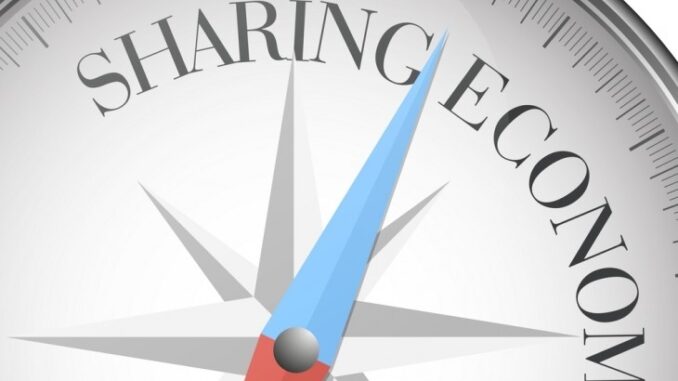
When we hear about alternatives to traditional jobs, we often think: freelance! But there’s more in the margins than just this type of work, and one of the fastest growing types of employment in the country is just as diverse. The sharing economy, which now counts 7% of American adults among its ranks according to the Wall Street Journal, is exemplified by companies and services like Uber, which serves as a formal middle-man between providers and people looking for a particular service. If you want to work for Uber you need a car, which means Uber is as much a networking company as it is a transportation service, and more importantly, it’s providing jobs that require a lot more than just your work. Another example is TaskRabbit, a service that advertises small odd-jobs on behalf of willing locals. In the case of both Uber and TaskRabbit, and many other new companies like them, the product or service is outsourced. So the question is, how does this play out for the workers, especially work-hungry millennials? According to a pair of WSJ op-eds, the verdict is still out, but the news is both good and bad.
Rachel Botsman, a professor at Oxford’s famed business school, seems to argue that the sharing economy is best suited for a group of people she calls “flexers”—people who can’t devote 40-hours a week to a full-time job—and to the droves of under and unemployed people around the country. Her argument, which takes the sharing economy to be a mostly positive development, admits that there are some worrisome aspects to those working for services like Uber and Lyft, namely, that health insurance and sick pay aren’t a part of the package. But, the benefits of the sharing economy—which apply especially to freely moving millennials—more than outweigh those gripes, particularly as a bit of respite for those who can’t find full-time work in the first place.
On the other hand, Andrew Keen, who heads up an event for leaders in the booming Silicon Valley economy, argues convincingly that the sharing economy isn’t all it’s cracked up to be, particularly for workers. Keen, who is quick to point out that companies like Homejoy are presenting opportunities to make some extra money, holds that the jobs they’re opening up aren’t good in a traditional sense, and instead that they’re widening inequality between the owners of the businesses and the workers building them up. Keen’s point looks at the long-run, not the cash-grab, and, he makes strong points that the sharing economy is working out best for the companies employing low-wage services.
So, how should millennials look at the sharing economy? If nothing else, whether you’re in school or just graduating, companies like Uber can provide fast, easy work. With prospects for steady jobs still precarious around the country, that’s nothing to scoff at. But there’s also something disconcerting about these positions: they’re great in the short-term but don’t offer much in the way of career stability. Millennials can afford to ride the wave of an easy-to-find gig for now, but what about a career? Signing up as an Uber driver is a perfect way to make some steady cash, but unlike other types of employment, there’s not much room for growth. And while there’s a growing “all work is good work” sentiment among recent grads especially, as long as we don’t confuse a gig for a job and a job for a career then we’re in good shape.
